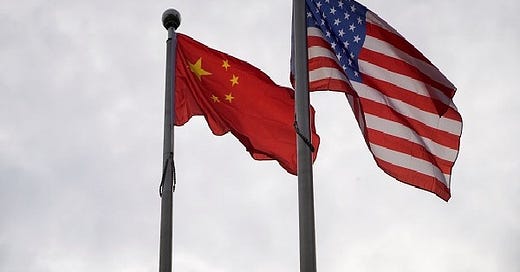United States warns China about human rights violations in Africa
US Jose W Fernandez, Under Secretary for Economic Growth, Energy, and Environment, made these remarks during a visit to Cape Town, South Africa, from May 9 to 12.
Hong Kong: The US has asked the Chinese government to respect African interests while also upholding human rights, including workers' rights and environmental protection.
US Jose W Fernandez, Under Secretary for Economic Growth, Energy, and Environment, made these remarks during a visit to Cape Town, South Africa, from May 9 to 12.
He went on to say that the US is not opposed to China investing in Africa as long as it respects human rights in Africa.
These remarks follow reports that Chinese businessmen have gradually encroached on local enterprises, leaving African countries highly reliant on their products and exports, according to the Hong Kong Post.
The African textile industry has been hard hit by cheaper Chinese exports, resulting in the loss of not only about 75000 jobs in the country, but also a 10% market share in neighbouring economies.
President Xi Jinping's 'Belt and Road Initiative (BRI)' is one of the causes of Africa's sorry state of affairs.
This initiative aims to invest in large infrastructure projects like ports, rails, roads, pipelines, and power plants.
According to the media portal, the BRI has become a symbol of wasteful spending, ecological destruction, and debt burdens for African countries seven years after its inception.
Chinese BRI projects have been marred by a lack of transparency and accountability, which has resulted in corruption.
According to a 2018 study report, approximately 270 BRI projects had issues with debt sustainability, labour and environmental standards, national security, transparency, and corruption.
Another major source of concern is the violation of human rights by Chinese businessmen on the continent.
According to a report compiled (2021) by the London-based Business and Human Rights Resources Center, Africa, approximately 27% of total cases of human rights violations were recorded against Chinese companies between 2013 and 2019.
The issues, which mostly concerned loss of livelihood, environmental impact assessment, and labour rights, were brought to the forefront in several countries, including Uganda, Kenya, Zimbabwe, Congo, and now Namibia, prompting a backlash from local civil society groups in these countries.
Previously, the Namibia Economic Freedom Fighters (NEFF) began protesting Chinese businessmen for their involvement in the sale of counterfeit goods. The government arrested (May 13) NEFF and ARM leaders Michel Amushelelo and Dimbulukele Navyoma, as well as 8 others, for protesting in Windhoek's China Town.
The protesters claimed that the entire Chinatown was selling counterfeit goods and demanded that Chinese businesses are closed and their goods are burned. Given the locals' resentment, the NEFF is likely to gain support from other civil society members, potentially exacerbating the situation against Chinese businesses. (ANI)



